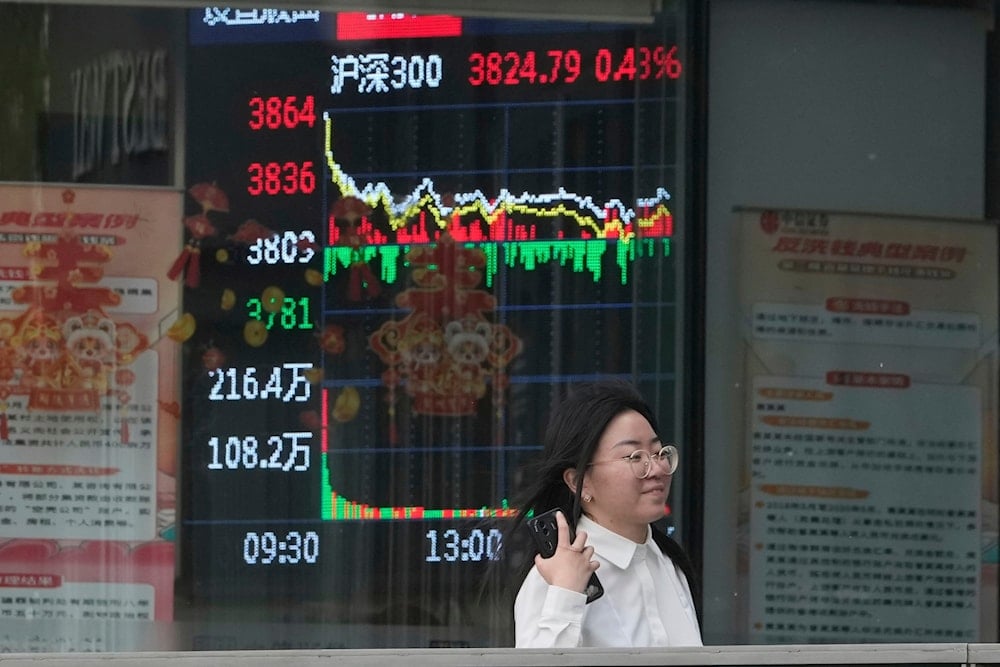European firms in China face 2025 US-China trade war pressures
Amid the 2025 US-China trade war sparked by Trump's tariffs, European companies in China face rising challenges, with most reporting tighter conditions, political pressure, and supply chain disruptions.
-

A woman passes by a stock index at a brokerage in Beijing, Wednesday, May 7, 2025. (AP)
Most European companies operating in China have so far managed to limit the direct fallout from the ongoing global trade war, though a majority report a tougher business climate this year, according to a survey cited by Bloomberg.
Published Thursday by the European Union Chamber of Commerce in China, the poll offers early insight into how foreign firms are navigating the intensified tariff war, with about 59% of respondents indicating that the business environment has become more challenging since early 2025.
While nearly half of the companies reported negative effects from Beijing's retaliatory tariffs on US goods, fewer than a third experienced direct consequences from the Trump administration’s latest duties on exports from China.
The survey, conducted between April 17 and 27, collected responses from over 150 firms.
Despite record-high tariffs imposed by the US and China's countermeasures, most European firms have mitigated the damage by enhancing their local footprint by adopting a strategy described as "in China, for China," according to the chamber’s findings.
EU Chamber of Commerce calls for policy reforms in China
The EU business group, which represents more than 1,700 companies, has urged Chinese authorities to adjust industrial policies to reduce international friction and promote greater economic cooperation. The survey's release comes as Beijing seeks to strengthen relations with Brussels and position itself as a stable global partner amid growing US-EU tensions.
Beijing introduced a new action plan earlier this year to reverse the steep decline in foreign investment, which in 2024 fell to its lowest point in more than three decades, including lifting all manufacturing sector market access restrictions and ensuring equal treatment for both domestic and foreign-produced goods.
Chinese President Xi Jinping has called on the European Union to reject unilateralism and deepen strategic communication, stating in a message to European Commission President Ursula von der Leyen that both sides must “properly manage” their differences.
Political and economic pressures weigh on European firms
The survey highlighted deepening concerns among European firms in China. Over 60% expect increased competition, while 58% foresee diminishing profitability, as more than half reported ongoing supply-chain disruptions.
Around 76% of respondents reported increased pressure from the US government since the start of 2025, significantly more than the 45% who reported similar scrutiny from Chinese authorities.
Jens Eskelund, President of the EU Chamber, noted, “It is difficult to overstate how much uncertainty this trade war has created for our members,” while expressing hope that China can turn the crisis into an opportunity to showcase its stability and reliability as an investment destination.

 3 Min Read
3 Min Read








